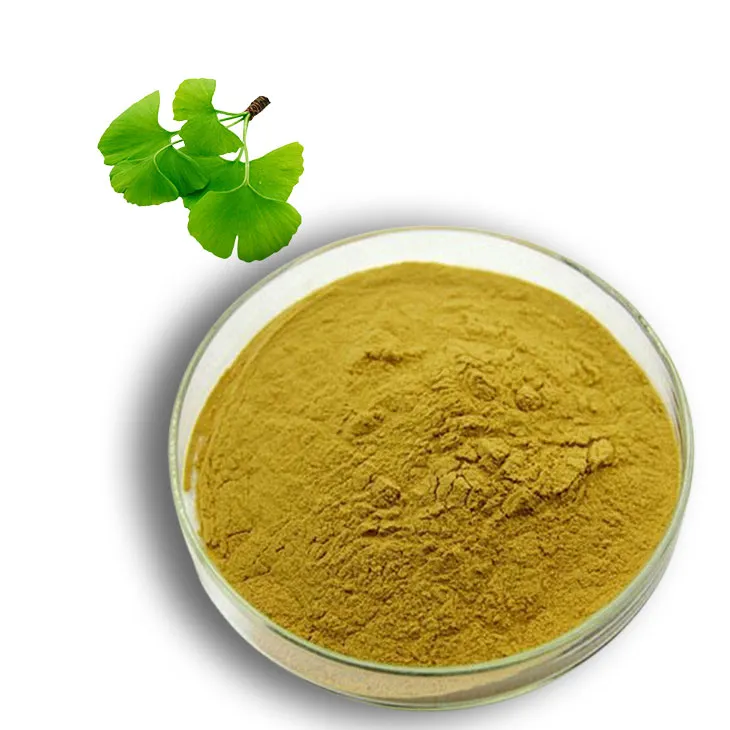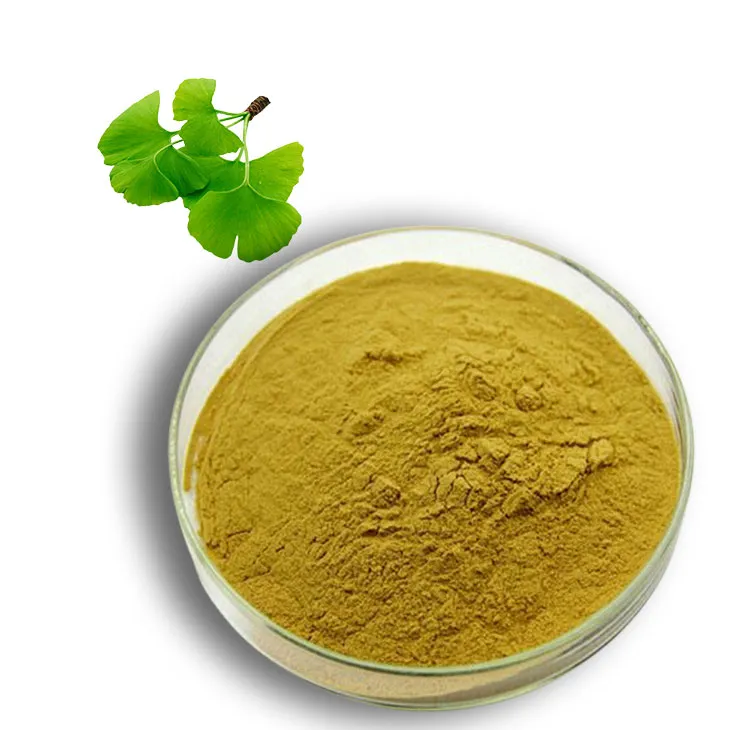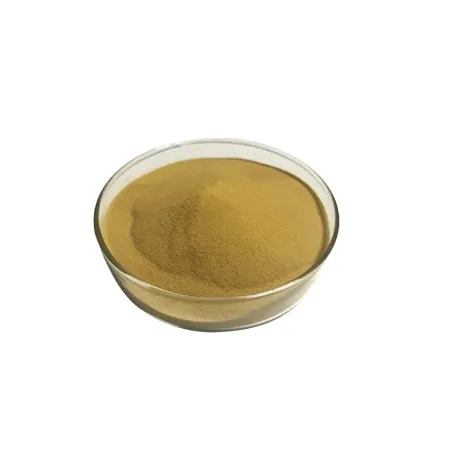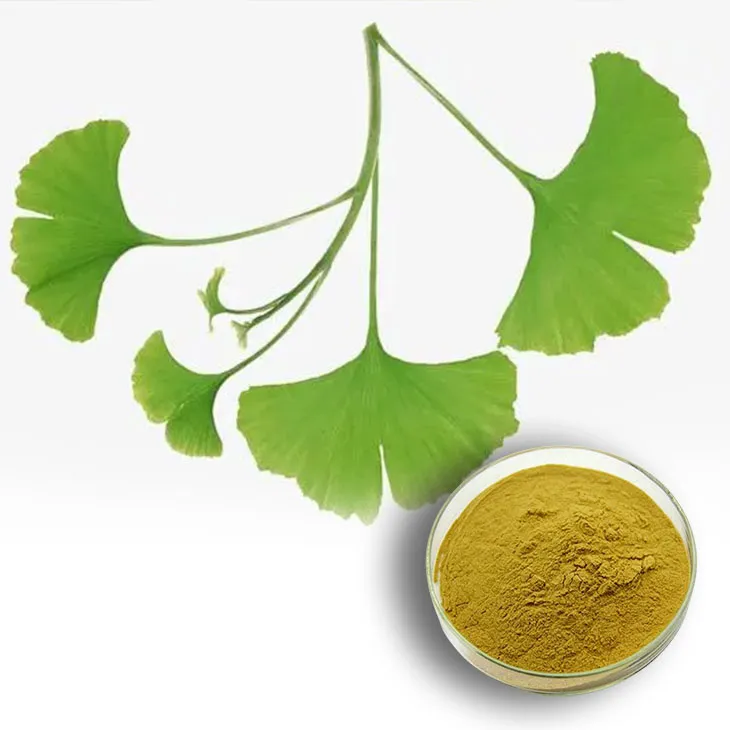- 0086-571-85302990
- sales@greenskybio.com
Bulk purchase of Ginkgo biloba extract.
2024-12-02

1. Introduction
Ginkgo biloba extract has gained significant popularity in various fields due to its potential health benefits. Bulk purchasing of this extract is a common practice among industries and research institutions. This article aims to comprehensively discuss the different aspects related to the bulk purchase of Ginkgo biloba extract.

2. Reasons for Bulk Buying
2.1 Pharmaceutical Industry
In the pharmaceutical industry, Ginkgo biloba extract is used in the production of medications. Many drugs are formulated with this extract as it has been studied for its potential in treating various conditions such as cognitive disorders, circulatory problems, and more. For large - scale drug production, bulk purchase of the extract is necessary. Pharmaceutical companies need a consistent supply of high - quality Ginkgo biloba extract to meet the market demand for their products.
2.2 Dietary Supplement Manufacturing
The dietary supplement market has witnessed a growing demand for Ginkgo biloba - based products. Consumers are increasingly interested in supplements that claim to enhance cognitive function, improve memory, and support overall well - being. Manufacturers of dietary supplements often buy Ginkgo biloba extract in bulk to keep up with the production requirements. This allows them to produce a sufficient quantity of their products at a cost - effective rate.
2.3 Research Purposes
In the field of research, scientists study Ginkgo biloba extract to further understand its properties and potential applications. Research institutions often require large amounts of the extract for in - vitro and in - vivo studies. Bulk purchase enables them to conduct comprehensive research without the worry of running out of the sample during the study period.

3. Quality Control in Bulk Purchase
3.1 Purity of the Extract
One of the crucial aspects of quality control in bulk purchasing of Ginkgo biloba extract is ensuring its purity. The extract should be free from contaminants such as heavy metals, pesticides, and other harmful substances. High - performance liquid chromatography (HPLC) and other analytical techniques are often used to determine the purity of the extract. Suppliers should be able to provide certificates of analysis that confirm the purity levels of their Ginkgo biloba extract.
3.2 Standardized Active Compounds
Ginkgo biloba extract contains active compounds such as flavonoids and terpenoids. For the extract to be effective in its intended applications, these active compounds should be present in standardized amounts. Quality control measures must be in place to ensure that the bulk - purchased extract has consistent levels of these active components. This helps in maintaining the uniformity of the final products in which the extract is used, whether it is a pharmaceutical drug or a dietary supplement.
3.3 Microbiological Quality
The microbiological quality of the Ginkgo biloba extract is also of great importance. It should be free from harmful microorganisms such as bacteria, fungi, and viruses. Microbiological testing, including tests for total plate count, yeast and mold count, and pathogen detection, should be carried out on the extract. Suppliers need to adhere to strict microbiological quality standards to ensure the safety of the product during bulk purchase.

4. Sourcing Reliable Suppliers
4.1 Reputation and Experience
When considering bulk purchase of Ginkgo biloba extract, the reputation and experience of the supplier play a significant role. A supplier with a good reputation in the industry is more likely to provide high - quality products. They should have a track record of supplying Ginkgo biloba extract to other reputable companies or institutions. Experience in the field indicates that the supplier is well - versed in the quality control and regulatory requirements associated with the extract.
4.2 Certification and Compliance
Reliable suppliers should hold relevant certifications. For example, they may have certifications such as Good Manufacturing Practice (GMP) or ISO certifications. These certifications ensure that the supplier follows strict manufacturing and quality control processes. Additionally, the supplier should be compliant with local and international regulations regarding the production and sale of Ginkgo biloba extract. This compliance is crucial as it guarantees the legality and safety of the product being supplied.
4.3 Supply Chain Transparency
A transparent supply chain is essential when sourcing Ginkgo biloba extract. The buyer should be able to trace the origin of the extract, from the raw materials to the final product. Suppliers who can provide detailed information about their supply chain, including the source of the ginkgo biloba leaves, the extraction process, and the storage and transportation conditions, are more trustworthy. This transparency helps in ensuring the quality and safety of the extract during bulk purchase.

5. Cost - Effectiveness in Bulk Purchase
5.1 Economies of Scale
One of the main advantages of bulk purchasing is the realization of economies of scale. When buying Ginkgo biloba extract in large quantities, the cost per unit is typically lower compared to small - quantity purchases. This is because suppliers can offer discounts for bulk orders, as it reduces their costs associated with packaging, handling, and transportation. Pharmaceutical companies, dietary supplement manufacturers, and research institutions can benefit from these cost savings, which can ultimately lead to more competitive pricing of their final products or more extensive research with the same budget.
5.2 Price Comparison
To ensure cost - effectiveness, it is essential to conduct a thorough price comparison among different suppliers. However, price should not be the sole determining factor. While it may be tempting to choose the supplier with the lowest price, it is crucial to also consider the quality of the extract, the supplier's reputation, and their compliance with regulations. A comprehensive cost - benefit analysis should be carried out, taking into account all these factors, to make an informed decision on the bulk purchase of Ginkgo biloba extract.
5.3 Long - Term Contracts
Entering into long - term contracts with suppliers can also contribute to cost - effectiveness. Long - term contracts often come with more favorable terms, such as fixed prices or price adjustments based on market trends. This provides stability for the buyer in terms of cost and supply. Additionally, it allows the supplier to plan their production more efficiently, which can further lead to cost savings that may be passed on to the buyer.
6. Regulatory Compliance in Bulk Purchase
6.1 National and International Regulations
There are various national and international regulations governing the bulk purchase of Ginkgo biloba extract. In different countries, there may be specific requirements regarding the labeling, quality, and safety of the extract. For example, in the United States, the Food and Drug Administration (FDA) has regulations for dietary supplements containing Ginkgo biloba extract. In the European Union, similar regulations are in place to ensure the safety and efficacy of products. Bulk purchasers need to be aware of these regulations and ensure that the suppliers they choose are compliant.
6.2 Documentation and Record - Keeping
Proper documentation and record - keeping are essential aspects of regulatory compliance in bulk purchase. Buyers should maintain records of all transactions related to the purchase of Ginkgo biloba extract, including invoices, certificates of analysis, and shipping documents. These records can be used for auditing purposes and to demonstrate compliance with regulations. Suppliers should also be able to provide the necessary documentation to support the quality and legality of their products.
6.3 Import and Export Regulations
When Ginkgo biloba extract is involved in international trade, import and export regulations come into play. There may be restrictions on the import or export of the extract depending on the country of origin and destination. Customs requirements, such as declarations and inspections, need to be followed. Bulk purchasers should ensure that they are aware of and compliant with these import and export regulations to avoid any legal issues or delays in the supply chain.
7. Conclusion
In conclusion, bulk purchase of Ginkgo biloba extract is a complex process that involves multiple considerations. The reasons for bulk buying, quality control, sourcing reliable suppliers, cost - effectiveness, and regulatory compliance all play important roles. By carefully evaluating these aspects, industries and research institutions can ensure a successful and efficient bulk purchase of Ginkgo biloba extract, which in turn can contribute to the development of high - quality pharmaceutical products, dietary supplements, and further research in this area.
FAQ:
What are the main reasons for bulk purchasing Ginkgo biloba extract?
The main reasons for bulk purchasing Ginkgo biloba extract include its use in the pharmaceutical industry for drug development, in dietary supplement manufacturing to meet market demand, and for research purposes to study its properties and potential benefits. In the pharmaceutical industry, it may be used as an ingredient in medications targeting various health conditions. Dietary supplement manufacturers buy in bulk to produce products like capsules or tablets for consumers interested in its potential cognitive, circulatory, or antioxidant effects. For research, large quantities are needed to conduct in - depth studies on its chemical composition, biological activities, and potential therapeutic applications.
How can one ensure quality control when making a bulk purchase of Ginkgo biloba extract?
To ensure quality control during a bulk purchase of Ginkgo biloba extract, several steps can be taken. Firstly, look for suppliers that follow Good Manufacturing Practice (GMP) guidelines. This ensures that the production process is standardized and of high quality. Secondly, request certificates of analysis (COA) for the product. The COA should detail information such as the purity of the extract, the presence of any contaminants, and the levels of active ingredients. Thirdly, conduct independent laboratory testing if possible. This can verify the accuracy of the information provided by the supplier. Additionally, check for proper storage and handling conditions of the extract by the supplier to prevent degradation of the product.
What are the key factors in sourcing reliable suppliers for Ginkgo biloba extract?
When sourcing reliable suppliers for Ginkgo biloba extract, reputation is a crucial factor. Look for suppliers with a long - standing history in the industry and positive reviews from other customers. Their compliance with regulatory standards, such as those related to quality, safety, and environmental protection, is also important. Suppliers should be able to provide detailed information about the origin of the ginkgo biloba raw material, including whether it is sustainably sourced. Their production capacity and ability to meet the required quantity for bulk purchase without sacrificing quality is another consideration. Transparency in their business operations, such as being open about their manufacturing processes and quality control measures, is also a sign of a reliable supplier.
How does cost - effectiveness play a role in the bulk purchase of Ginkgo biloba extract?
Cost - effectiveness is an important aspect in the bulk purchase of Ginkgo biloba extract. Buying in large quantities often allows for a lower unit cost, which can be beneficial for businesses. However, it is not just about the price per unit. One must also consider the quality of the extract. A cheaper product may seem cost - effective initially, but if it fails to meet quality standards or has a lower concentration of active ingredients, it may not be truly cost - effective in the long run. Additionally, factors such as shipping costs, storage requirements, and potential waste due to quality issues need to be factored into the overall cost - effectiveness analysis. Suppliers may also offer discounts for bulk purchases, but it is important to ensure that these do not come at the expense of quality.
What regulatory compliance should be considered during the bulk purchase of Ginkgo biloba extract?
During the bulk purchase of Ginkgo biloba extract, several regulatory compliance aspects need to be considered. In the pharmaceutical industry, it must comply with drug regulatory authorities' requirements regarding quality, safety, and efficacy. For dietary supplements, regulations related to labeling, ingredient safety, and manufacturing processes must be followed. There may be specific regulations regarding the maximum and minimum levels of active ingredients, as well as restrictions on contaminants. Additionally, international trade regulations may apply if the product is being sourced from or shipped to different countries. Compliance with environmental regulations related to the sourcing and processing of ginkgo biloba is also becoming increasingly important.
Related literature
- The Quality and Efficacy of Ginkgo biloba Extract: A Comprehensive Review"
- "Bulk Purchasing in the Botanical Extract Industry: Best Practices"
- "Regulatory Requirements for Ginkgo biloba - Based Products"
- ▶ Hesperidin
- ▶ citrus bioflavonoids
- ▶ plant extract
- ▶ lycopene
- ▶ Diosmin
- ▶ Grape seed extract
- ▶ Sea buckthorn Juice Powder
- ▶ Beetroot powder
- ▶ Hops Extract
- ▶ Artichoke Extract
- ▶ Reishi mushroom extract
- ▶ Astaxanthin
- ▶ Green Tea Extract
- ▶ Curcumin Extract
- ▶ Horse Chestnut Extract
- ▶ Other Problems
- ▶ Boswellia Serrata Extract
- ▶ Resveratrol Extract
- ▶ Marigold Extract
- ▶ Grape Leaf Extract
- ▶ blog3
- ▶ blog4
-
The best lemon juice powder in nature.
2024-12-02
-
Organic Vitamin K2 Powder Suppliers
2024-12-02
-
Bulk purchase of L - tyrosine.
2024-12-02
-
Vitamin K2 Manufacturers
2024-12-02
-
100% Pure Natural Rutin.
2024-12-02
-
Chinese Citrus Bioflavonoid Suppliers.
2024-12-02
-
Saffron Extract Powder
2024-12-02
-
Bitter Melon Extract
2024-12-02
-
Bamboo Leaf extract
2024-12-02
-
Chaste Berry Extract
2024-12-02
-
Giant Knotweed Extract
2024-12-02
-
Pine bark Extract Powder
2024-12-02
-
Natural grape seed extract
2024-12-02
-
Citrus Aurantii Extract
2024-12-02
-
Tormentil Extract
2024-12-02
-
Avocado Extract Powder
2024-12-02





















